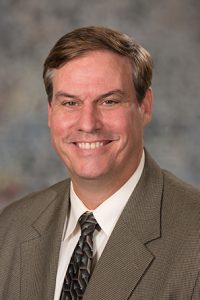Grant fund proposal for 211 service advanced
Lawmakers gave first-round approval April 11 to a bill that would provide grant funding to a statewide health and human services referral program.

Currently, the Telecommunications Relay System Act levies a surcharge on telephone lines in Nebraska to provide specialized equipment for qualified deaf, hard of hearing and speech-impaired individuals.
LB641, introduced by Omaha Sen. Mike McDonnell, would allocate a portion of that surcharge to provide a $300,000 annual grant to the 211 Information and Referral Network.
The network is a free hotline that connects Nebraskans with non-emergency health and human services, McDonnell said, and currently is administered by United Way of the Midlands.
Much of the funding for 211 comes from charitable donations in Omaha, where United Way of the Midlands is located, he said.
“Right now, 211 is vulnerable to downturns in Omaha’s economy and changes in the philanthropic community,” McDonnell said. “LB641 helps to ensure that 211 will continue to be available throughout the entire state 24 hours a day, seven days a week.”
The grant would be used to create a website to educate users about and connect them with available services. The grant also could be used to provide 24/7 service through telephone and online access.
The Nebraska Public Service Commission would accept applications from potential providers each year and approve a program administrator based on its ability to update the information and referral services annually, geographically index such services by county and meet all accreditation standards set by the Alliance of Information and Referral Systems.
A Transportation and Telecommunications Committee amendment, adopted 36-0, would expand the reach of 211 services to include disaster and emergency response. It also would change the bill’s funding mechanism from the surcharge to a transfer of $300,000 annually from the Nebraska Health Care Cash Fund for the next two years.
Omaha Sen. Sara Howard spoke in support of LB641, but opposed using money from the cash fund to pay for the bill’s provisions. The fund should be used judiciously to cover the state’s health care needs, she said, and risks becoming unsustainable if it becomes a “piggy bank” for other legislative priorities.
“While I support LB641—and I want to be very clear about that—I do not support funding for this program to come out of the [Nebraska Health Care Cash Fund],” Howard said. “I don’t think it’s an appropriate place for it and I think the two-cent surcharge is far more appropriate.”
Senators advanced LB641 to select file on a 35-0 vote.

